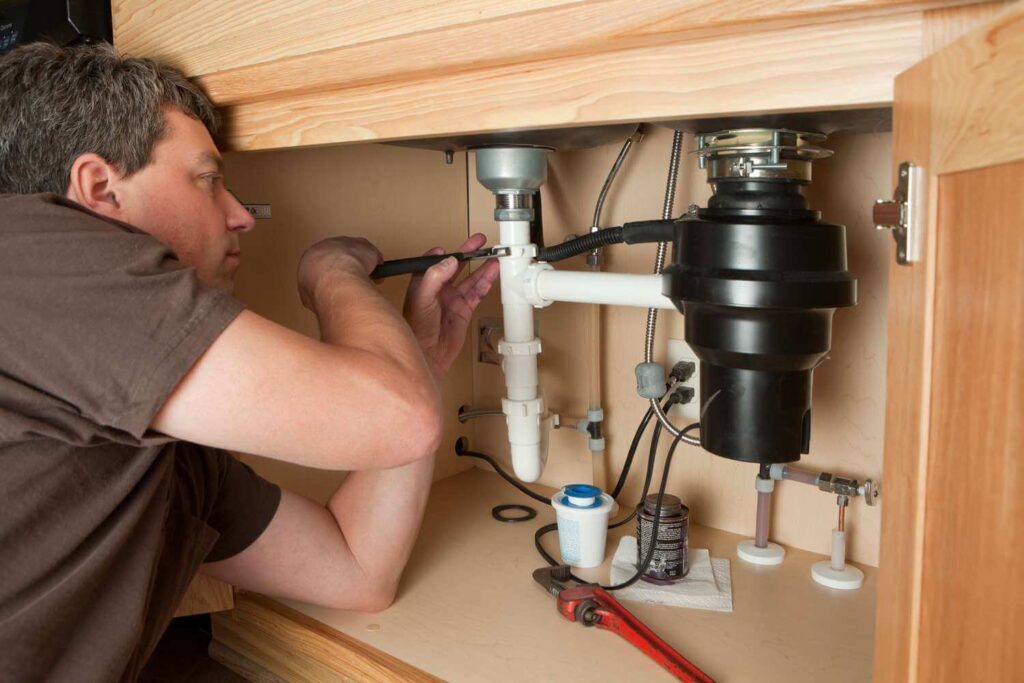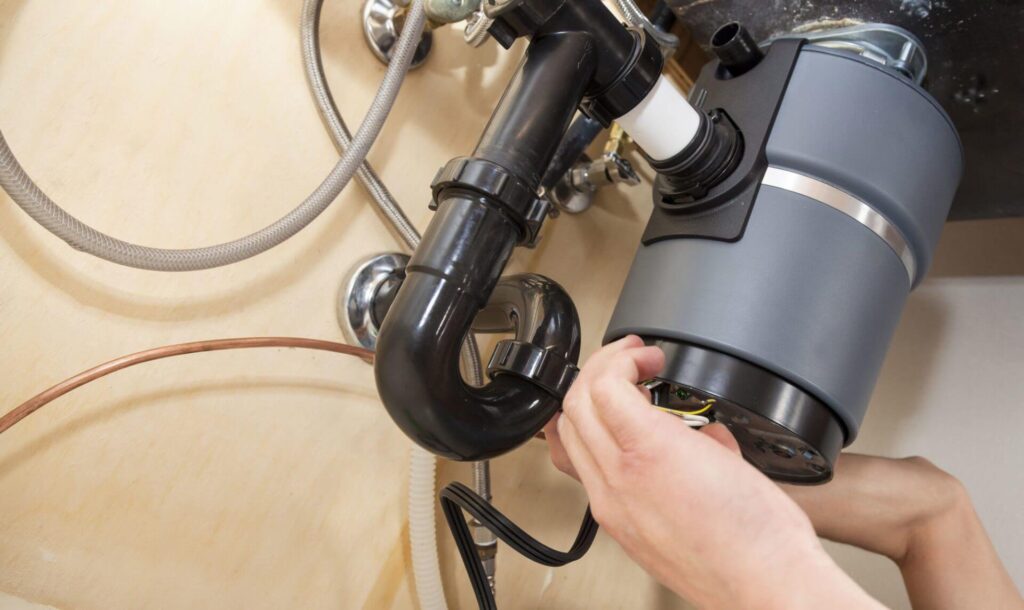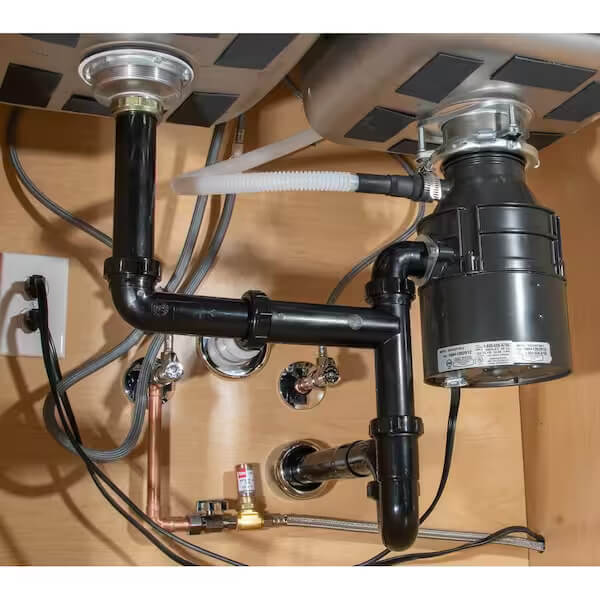
Garbage disposals are the unsung heroes of our kitchens. They work tirelessly to make our lives easier, but when they start acting up, it can be a real kitchen nightmare. Don’t worry, though; we’ve got you covered. In this comprehensive guide, we’ll delve into the world of garbage disposal troubleshooting. We’ll explore common problems and provide detailed solutions to help you get your disposal back in top shape.
The garbage disposal is a modern marvel that shreds food waste into tiny particles, making it easier to dispose of through your plumbing. However, like any mechanical device, it can encounter issues over time. From strange noises to clogs and leaks, we’ll address these common problems and guide you through the process of solving them.
Problem 1: The Silent Treatment
Symptoms: Your disposal has gone eerily quiet, and there’s no comforting hum.
Solution: First, check the power supply. It might sound simple, but occasionally, someone may have unplugged it or tripped the circuit breaker. If it’s not a power issue, find the reset button typically located on the bottom of the disposal. Push it. This is your disposal’s way of saying, “Give me a second chance.”
Problem 2: The Dreaded Clog
Symptoms: Your disposal isn’t draining, and you suspect a clog.
Solution: A clogged garbage disposal can be a pain. First, turn off the power to the disposal to avoid any accidents. Most disposals come with an Allen wrench specifically designed for this purpose. Insert it into the bottom of the unit and give it a few turns. This should free up any jammed material. If that doesn’t do the trick, turn off the power and use pliers to remove any debris causing the clog.
Problem 3: The Nasty Odors
Symptoms: An unpleasant smell is lingering around your sink.
Solution: Kitchen odors are no joke, but you can tackle them head-on with a simple remedy: lemons. Cut up some lemon wedges and throw them down the disposal. Turn it on, and let the power of citrus banish those unpleasant odors.
Problem 4: The Water World
Symptoms: Water is leaking from your disposal.
Solution: A leak can be a frustrating problem. Start by checking for leaks around the disposal unit itself. If you find any, tighten the connections. Leaky pipes can lead to more significant issues down the road, so it’s best to address this promptly.
Problem 5: The Stubborn Blades
Symptoms: The disposal is making a loud grinding noise but not effectively grinding food waste.
Solution: If you’re hearing a grinding noise, but it’s not grinding, it’s likely the blades are dull. This is where science comes to the rescue. Drop a handful of ice cubes into the disposal, turn it on, and let the ice work its magic to sharpen those blades.
Problem 6: The Phantom Hum
Symptoms: Your disposal is humming, but it’s not grinding.
Solution: When your disposal hums without grinding, it’s time to turn it off immediately. Use tongs or pliers to reach inside and remove any foreign objects that might be causing a blockage.
Problem 7: The Frequent Tripper
Symptoms: The disposal’s circuit breaker keeps tripping.
Solution: Frequent tripping can be a sign of overloading. If it’s happening often, consider reducing the amount of waste you’re feeding into the disposal at once. If the problem persists, it might be time to call in a professional to assess the electrical connections.
Problem 8: The Mysterious Leak
Symptoms: Water is pooling beneath the disposal, but the source is unclear.
Solution: Leaks can be elusive, but it’s time to put on your detective hat. Start by wiping everything dry, then run water and observe closely for any signs of leakage. This will help you pinpoint the problem faster.
Problem 9: The Rusty Dilemma
Symptoms: Your disposal is rusting.
Solution: Unfortunately, rust can creep up on your disposal. To prevent this, keep the unit dry, use rust-resistant materials, and consider periodic treatments to keep rust at bay.
Problem 10: The Unpleasant Noise
Symptoms: Your disposal is making excessive noise, and it’s driving you up the wall.
Solution: If your disposal is making more noise than a rock concert, it might be due to foreign objects. Carefully inspect and remove any debris, and your disposal will be back to its quiet, hardworking self in no time.
Preventative Measures

While it’s essential to know how to troubleshoot common garbage disposal problems, prevention is often the best medicine. Here are some tips to keep your disposal in top shape:
- Watch What You Feed It: Don’t treat your disposal like a bottomless pit. Avoid putting large bones, fibrous vegetables, or hard objects like glass or metal down the disposal. Stick to softer food waste.
- Run Cold Water: After using your disposal, run cold water for at least 15 seconds to help flush debris and prevent clogs.
- Use Citrus Peels: In addition to lemon wedges, you can use citrus peels regularly to help maintain a fresh, clean-smelling disposal.
- Regular Maintenance: Consider performing maintenance at least twice a year, such as cleaning the disposal with baking soda and vinegar or using commercial disposal cleaning products.
- Grind Ice Cubes: Grinding ice cubes occasionally will help keep the blades sharp and prevent odors.
- Avoid Chemical Drain Cleaners: Chemical drain cleaners can damage your disposal. Opt for natural cleaning methods like vinegar and baking soda instead.
When to Call a Professional
While many garbage disposal issues can be resolved with some DIY know-how, there are times when it’s best to call in a professional plumber or electrician. Here are some situations where professional help is warranted:
- Electrical Problems: If your disposal has electrical issues, it’s essential to call a certified electrician to avoid hazards.
- Frequent Clogs: If your disposal constantly clogs, it may be due to a more complex issue within your plumbing system that a professional should assess.
- Persistent Leaks: Leaks that persist despite your best efforts may require a professional to diagnose and repair.
- Unusual Noises: Unusual or extremely loud noises could indicate a mechanical problem that needs professional attention.
- Old Disposals: If your disposal is past its prime and continuously causing problems, it might be more cost-effective to replace it with a new unit.
Additional Tips for Optimal Garbage Disposal Maintenance

You’ve already learned the fundamentals of garbage disposal troubleshooting, but to keep your disposal running smoothly, here are some additional tips for optimal maintenance:
- Use Cold Water While Grinding: When you’re running your disposal, always use cold water. Cold water helps solidify any grease or oils that may have entered the disposal. This makes it easier for the blades to chop them up and prevents clogs caused by congealed fats.
- Keep it Clean: Regular cleaning is essential for maintaining a clean-smelling and efficient disposal. After using it, run cold water for about 30 seconds to ensure all the food particles are flushed out.
- Be Mindful of Fibrous Foods: Avoid putting fibrous foods like celery, corn husks, or onion skins down the disposal. These can tangle the blades and cause blockages.
- Don’t Overload It: Though your disposal is designed to handle food waste, it’s not invincible. Avoid overloading it with a massive amount of food all at once. Feed it gradually to prevent clogs and excessive wear and tear.
- Maintain a Healthy Septic System: If you have a septic system, it’s crucial to use a garbage disposal specifically designed for septic systems. Regular disposals can disrupt the balance of your septic tank, leading to problems.
- Use Disposal Cleaners: Commercial disposal cleaners can help break down grease and grime. Use them regularly to maintain optimal disposal performance and prevent odors.
- Avoid Hard Objects: Do not put hard objects like fruit pits, bones, or shells into the disposal. They can damage the blades and shorten the unit’s lifespan.
- Fix Leaks Promptly: If you notice any leaks around your disposal, it’s vital to address them immediately. A leaking disposal can lead to water damage and mold growth.
- Regular Maintenance Checks: Perform visual and manual checks periodically to ensure all parts are in working order. If you spot any issues, address them promptly to prevent further damage.
- Know Your Limits: Remember that a garbage disposal is not a substitute for a trash can. Certain items should never be put down the disposal, such as paper, glass, plastic, or metal.
By following these additional tips, you can extend the lifespan of your garbage disposal and enjoy trouble-free kitchen cleanup for years to come.
Final Thoughts
Your garbage disposal is a kitchen workhorse, but it needs a little TLC to keep running smoothly. By following the troubleshooting solutions, preventative measures, and additional tips outlined in this guide, you can maintain a clean, efficient, and odor-free disposal. Remember that safety always comes first, so exercise caution when performing any maintenance tasks, and don’t hesitate to call a professional if you encounter complex issues. With these insights, you’ll be well-prepared to tackle any challenges that come your way and enjoy a hassle-free kitchen experience. Happy grinding and disposing!
Frequently Asked Questions (FAQs)
- Can I put coffee grounds in the garbage disposal?
Coffee grounds can clog your disposal and plumbing over time. It’s better to dispose of them in the trash or use them in your garden as compost.
- Are there any foods I should never put in the disposal?
Yes, avoid putting foods like bones, fruit pits, shells, grease, oil, fibrous vegetables, and non-food items down the disposal.
- Can I sharpen the disposal blades myself?
Grinding ice cubes periodically can help keep the blades sharp. However, if they become severely dull or damaged, it’s best to consult a professional.
- Is it safe to use chemical drain cleaners in the disposal?
Chemical drain cleaners can damage the disposal and pipes. It’s advisable to use natural cleaning methods like vinegar and baking soda.
- How often should I clean my garbage disposal?
Cleaning your disposal at least once a week can help prevent odors and keep it in good condition.
- What if my disposal is still under warranty and not working correctly?
If your disposal is under warranty and experiencing issues, contact the manufacturer or the retailer you purchased it from for support.
